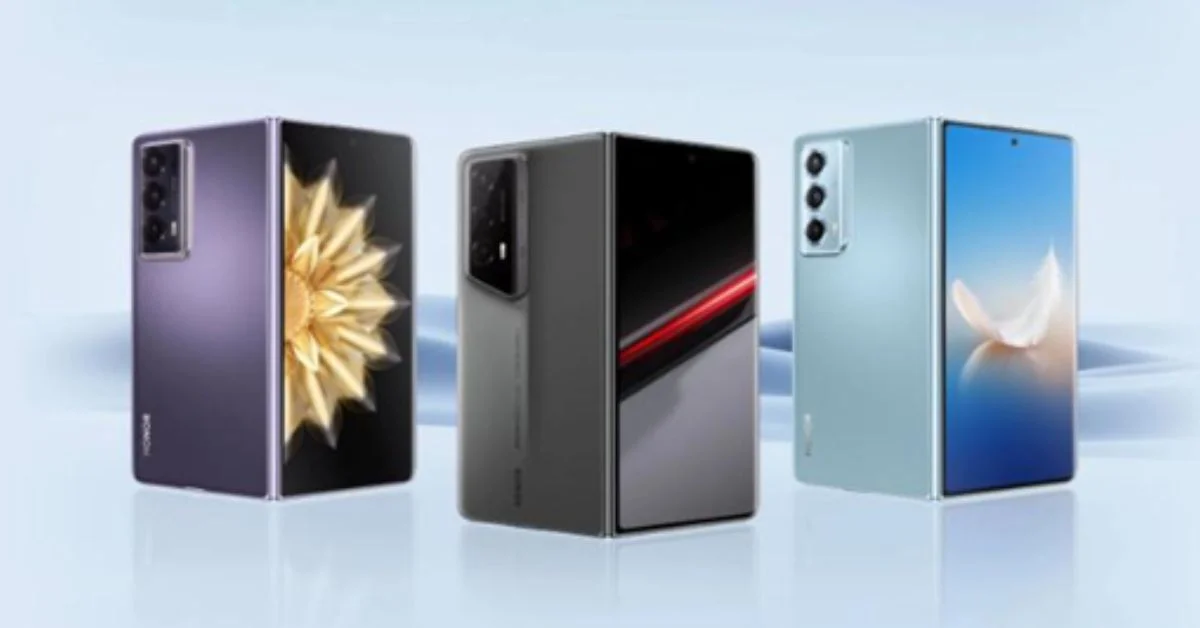Foldable phones have rapidly transitioned from sci-fi dreams to tangible innovations that are transforming the mobile landscape. As technology advances, these devices bring together the convenience of a smartphone with the expansive screen space of a tablet. This blog explores the journey of foldable phone technology, covering major advancements, everyday benefits, and the future possibilities of these cutting-edge devices.
What Sparked the Foldable Phone Revolution?
The concept of foldable phones has captivated tech enthusiasts and manufacturers for years. It wasn’t an easy path; early prototypes faced substantial challenges in durability and hinge reliability. However, the continuous pursuit of innovation by companies like Samsung, Huawei, and HONOR turned the foldable phone from a concept into reality. The drive behind this revolution was the quest to combine portability with a larger, more versatile display. Users increasingly wanted devices that allowed multitasking, offered immersive viewing, and remained compact enough to carry easily.
How Has Foldable Phone Technology Advanced?
The success of foldable phones is the result of advancements in key areas, including display technology, hinge durability, and adaptive software.
Display Innovations
Flexible OLED and AMOLED screens have been foundational to foldable phone technology. These high-tech screens can bend without breaking, allowing for a smooth transition between a compact device and a larger, tablet-like display. Industry leaders like Samsung and Huawei led the way, while HONOR’s recent models showcase the latest innovations. HONOR’s ultra-thin, high-resolution displays offer remarkable brightness and color accuracy, enabling vibrant visuals that adapt to the user’s needs.
Hinge Mechanisms and Durability
A reliable hinge is essential for foldable phones, as it directly impacts durability and usability. In recent years, manufacturers have developed robust, lightweight hinges using advanced materials like titanium alloy. For instance, HONOR’s latest models incorporate aviation-grade titanium hinges, enhancing the phone’s durability without adding bulk. These hinges are engineered to endure thousands of folds, ensuring that users enjoy a device that lasts. With such advancements, today’s foldable phones can withstand daily use without the risk of mechanical failure.
Software Adaptations for Flexibility
Alongside hardware, software has evolved to support foldable devices. Operating systems like Android have introduced updates to enable multi-window applications, responsive transitions, and optimized multitasking. Custom user interfaces ensure that apps work seamlessly in different modes, maintaining a fluid and intuitive experience whether the phone is folded or unfolded. This adaptability empowers users to switch effortlessly between tasks, significantly enhancing productivity and usability.
Benefits of Foldable Phones in Everyday Life
Foldable phones offer a range of unique benefits that enhance daily activities, from productivity to entertainment.
Multitasking and Productivity
Foldable phones take multitasking to the next level. With a larger screen that can display multiple apps at once, users can easily manage work and personal tasks without switching devices. Split-screen functionality, available on many foldable models, allows users to review documents, reply to messages, and browse the web simultaneously. For professionals and power users, this translates into increased productivity and a more streamlined workflow. The flexibility to handle multiple tasks on a single device makes foldable phones an attractive option for busy individuals.
Enhanced Viewing Experiences
The larger screens of foldable phones offer an improved experience for media consumption, such as streaming videos, gaming, and reading. With high-resolution displays, foldable phones like the HONOR Magic V2 RSR provide visuals comparable to those of a tablet. This immersive experience is perfect for on-the-go entertainment, and their portable nature means users don’t have to carry multiple devices. Whether for movies, games, or digital reading, foldable phones combine quality and convenience in a way that traditional smartphones can’t match.
Are Foldable Phones the Future of Mobile Technology?
Looking at the advancements and benefits, it’s clear that foldable phones have the potential to shape the future of mobile technology. They meet the evolving demands of users who want functionality and portability in a single device. As technology progresses, foldable phones are likely to become even more sophisticated, featuring lighter materials, more efficient batteries, and further software improvements. This evolution will make them more accessible and cost-effective, allowing a broader audience to enjoy the benefits of foldable technology. Consequently, foldable phones seem poised to play a significant role in the future of mobile technology.
Conclusion
The evolution of foldable phone technology marks a milestone in mobile device history. By overcoming early challenges and introducing groundbreaking features, foldable phones have established themselves as valuable tools for modern users. As they become more mainstream, foldable phones promise to redefine how we interact with mobile technology, merging flexibility with functionality in ways that open new possibilities for personal and professional use. With continuous advancements in display technology, hinge durability, and adaptive software, the future of foldable phones looks bright, paving the way for a new era of mobile innovation.
If you find this article helpful, click here for more.









